A closer look at the Trump campaign's election lawsuits — and why they've mostly failed
As President Trump continues to deny his Election Day loss to President-elect Joe Biden and falsely claim that widespread fraud occurred in battleground states, his campaign and its Republican allies have unleashed a barrage of lawsuits they hope will overturn the results.
All told, Trump’s campaign has either filed or joined a dozen election-related lawsuits in Arizona, Georgia, Michigan, Nevada and Pennsylvania, alleging that counties used faulty machines, improperly submitted ballots, violated election laws, tampered with ballots to make the votes legitimate and a host of other allegations that seek to discredit the voting processes in those states, particularly in largely populated counties that turned out for Biden.
So far, the Trump campaign has secured only two apparent victories, and most of the lawsuits that aren’t pending have been dismissed for lack of merit or reliance on testimony that’s hearsay, according to a review of the complaints filed as of Nov. 12.
Legal experts have said it’s doubtful that any of these cases will result in an election victory for Trump.
“These legal maneuvers are unlikely to pay off in the form of a second term for Trump,” Richard Hasen, an elections expert at the University of California, Irvine, wrote in the Atlantic. “He would need the equivalent of three consecutive Hail Mary passes to stay in office.”
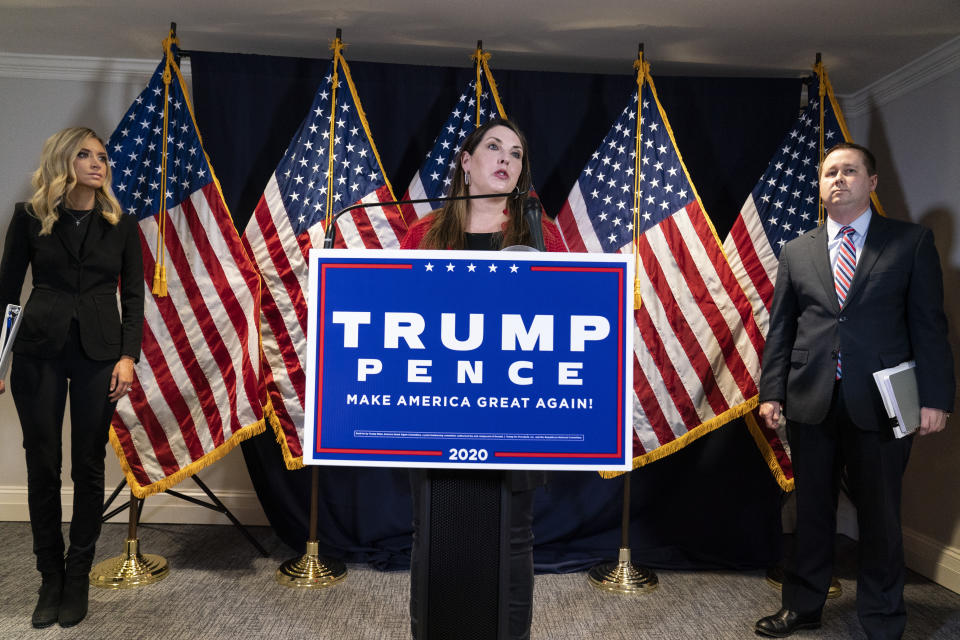
But Trump’s campaign seems to be hell-bent on trying.
“Every time we take a step along this process, we believe we are getting closer to our goal, and that is the president winning these states and ultimately being reelected,” Trump campaign spokesman Tim Murtaugh said Wednesday on a conference call with reporters, during which the campaign talked about its legal efforts in Georgia.
Lawyers for Biden said Tuesday that the campaign’s efforts are “meritless” and won’t lead to the outcome the Trump campaign is seeking. “They can’t overturn the outcome of this election,” Bob Bauer told reporters on the video conference call.
Here’s a rundown of the legal maneuverings the Trump campaign has attempted to date in the states that have, so far, shown Biden with a clear lead.
Arizona: ‘Sharpie’ ballot claims alleged in two county lawsuits
The first postelection lawsuit in Arizona was filed Nov. 4 on behalf of a voter who said her ballot was not recorded on Election Day because she used a Sharpie to mark her ballot, the Associated Press reported. The plaintiff also wanted the court to allow her to observe the ballot-counting process. That case was dismissed on Nov. 7, court records show.
The Trump campaign, the Arizona Democratic Party and the Republican National Committee were listed as intervenors in the case, meaning that they weren’t directly involved in the lawsuit but have an interest in the outcome. Alexander Kolodin, an attorney for the plaintiff, told Yahoo News that his legal team had the suit dismissed because the Trump campaign and Arizona Democrats joined the lawsuit, making the case much larger than his client could afford.
On Nov. 7, a similar lawsuit was filed against Arizona Secretary of State Katie Hobbs in the same court by Trump’s campaign, the Republican National Committee and the Arizona Republican Party, court records show. Kolodin said the new lawsuit expanded on the original claims of ballots being improperly recorded due to being marked with a Sharpie. The lawsuit stated that the ink bled through the ballots, causing irregularities when submitted into voting machines.
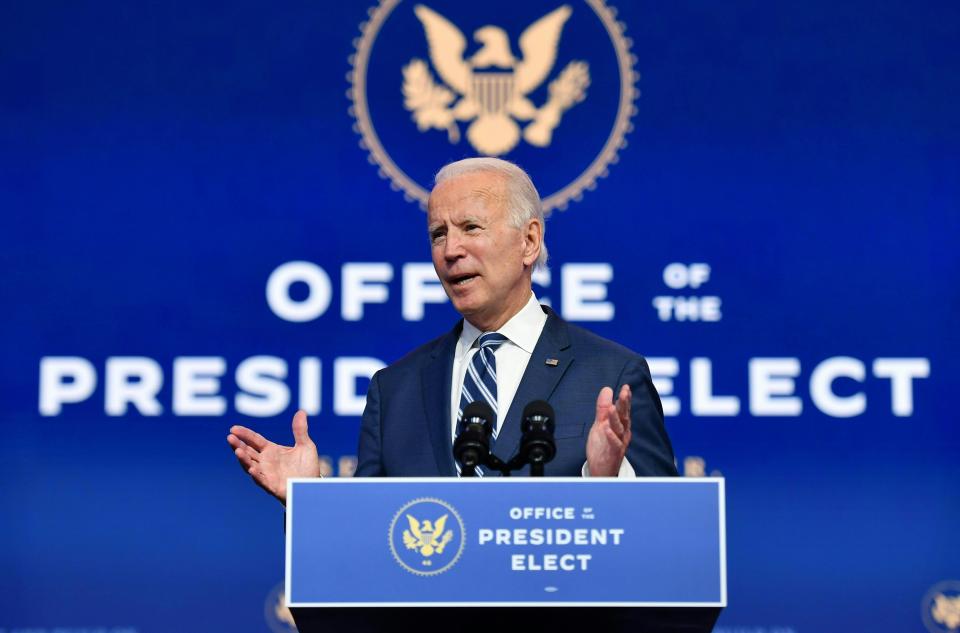
The complaint also alleged that workers did not handle these alleged irregularities correctly. The campaign said that poll workers “struggled to operate new voting machines in Maricopa County, and improperly pressed and told voters to press a green button to override significant errors,” alleging that this resulted in voting machines disregarding votes.The Maricopa County Elections Department, however, tweeted on Election Day that Sharpies are used in the voting centers “so the ink doesn’t smudge as ballots are counted onsite.” It added that “new offset columns on the ballots means bleed through won’t impact your vote.”
The second lawsuit alleged that because of these issues, “potentially thousands of voters across Maricopa County have been disenfranchised” due to their ballots being rejected. But a lawyer for the county said Monday that out of 155,860 in-person votes in Maricopa County, only about 180 votes are potentially tainted, the Arizona Republic reported.
The Associated Press called Arizona for Biden, with the results showing Biden about 11,000 votes ahead of Trump.
Georgia: Lawsuit over ‘late ballots’ is dismissed
A lawsuit filed by the Trump campaign in Chatham County, Ga., on Nov. 4 sought to require all counties to separate “late-arriving ballots” from all “legally cast ballots,” and alleged that a Republican poll observer witnessed “53 late absentee ballots illegally added to a stack of on-time absentee ballots” in the county. But Chatham County Superior Court Judge James Bass dismissed the lawsuit, the Associated Press reported, after county election officials testified that the ballots in question were received on time.
Biden is ahead in Georgia, leading Trump by about 14,000 votes. Georgia Secretary of State Brad Raffensperger announced on Nov. 11 that there would be a hand recount in the race.
According to law Georgia passed in 2019-- Georgia is required have a state-wide hand Risk Limiting Audit (RLA), trigging a recount.
We are committed to counting every legal ballot. Georgia voters deserves accurate, secure results. We stand by our numbers.— GA Secretary of State Brad Raffensperger (@GaSecofState) November 11, 2020
Michigan: Trump campaign seeks to block election certification
On Nov. 4, the Trump campaign filed a complaint in the Michigan Court of Claims to halt vote counting until the campaign is provided “meaningful” access to observe the process. The lawsuit alleged that Michigan Secretary of State Jocelyn Benson violated Michigan election law by allowing “absent voter ballots” to be processed and counted “without allowing challengers to observe the video of the ballot boxes” into which the ballots are placed, according to a copy of the complaint.
Eric Ostegren, described in the suit as a “credentialed election challenger,” was allegedly excluded from the counting board during the absent voter ballot review, the complaint said.
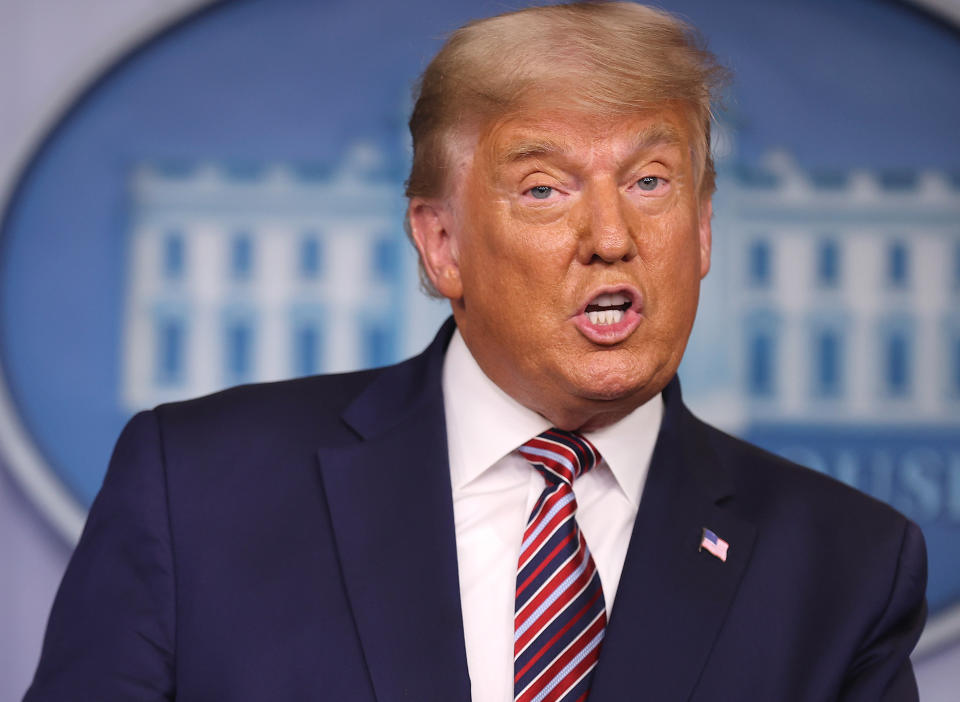
In a sworn affidavit, a poll worker said she heard that other poll watchers had been instructed to change the dates on mail-in ballots to show they had been received before Election Day so they could be counted, according to the complaint.
Judge Cynthia Stephens denied the complaint on Nov. 6, court documents show, writing in her opinion that it did not specify when, where or why the alleged exclusion occurred. She dismissed the poll watcher’s account as hearsay.
The Trump campaign filed a separate federal lawsuit in Michigan on Nov. 11 that seeks to delay the certification of election results in that state and, similar to the local complaint, alleges Wayne County refused to let “designated challengers” observe the processing of the ballots. It also accuses election officials of predating ballots that weren’t eligible to be counted by “altering the date the ballot was received.”
Biden won Michigan by almost 150,000 votes, the Associated Press reported.
Nevada: Lawsuits claim ballot signature machines were faulty
A state lawsuit filed by the Nevada Republican Party on Election Day alleged that Clark County unlawfully used a machine to verify signatures on ballots. State law requires in-person signature verification. The case was settled, court filings indicate, but the details of the settlement are unclear.
The same issue — the use of signature-verification software in Clark County — formed the basis of a federal lawsuit that was filed on Nov. 5 against Nevada Secretary of State Barbara Cegavske. That case sought an injunction to stop the counting of mail-in ballots. The civil case — filed on behalf of the campaigns of two Republican congressional candidates, a Las Vegas voter and a person described as a “credentialed member of the media” — alleged that ballots were being improperly counted and that media was not allowed to observe the ballot-counting process. In response, attorneys for Cegavske said the electronic machines comply with Nevada law, which allows Clark County’s registrar to authorize mail-in ballots to be processed and counted by electronic means, and doesn’t specify what method must be used to check the signature used for the ballots.
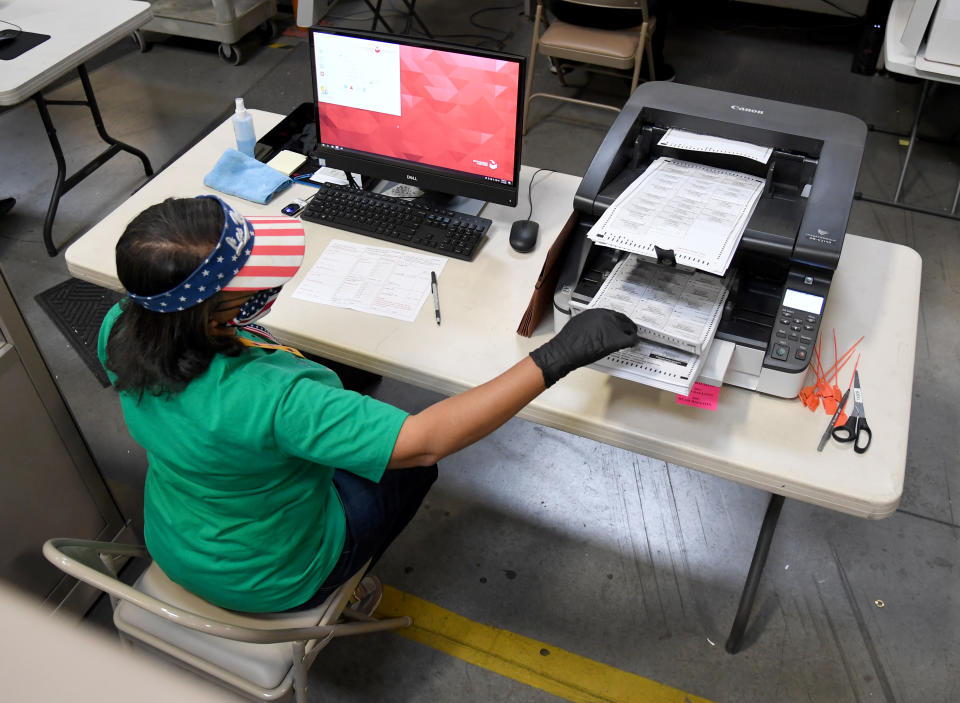
The attorneys later added that the media member was, at most, denied less than 90 minutes of access to ballot counting. U.S. District Court Judge Andrew Gordon, who presided over the case, denied the request for an injunction on Nov. 6, court records show. Gordon, according to the Reno Gazette Journal, said there was scant evidence to show that there were issues with the signature machines, and added that by weighing in on the case he’d be usurping the role of the state legislature.
At least four other election-related lawsuits filed by Trump’s campaign in Nevada have been tossed out, Nevada Attorney General Aaron Ford, a Democrat, told Yahoo Finance on Nov. 9. “They continue to come with frivolous, baseless claims of speculation about voter fraud that's widespread that ostensibly is changing the results of the election. And we continue to get them tossed out of court, because in fact they are speculative,” he said.
The Associated Press called Nevada for Biden, who’s currently leading in the state by about 37,000 votes.
Pennsylvania: Trump targets mail-in ballots and election certification
The Trump campaign filed a lawsuit in Philadelphia County on Nov. 4 over what the complaint described as insufficient access for one of the campaign’s lawyers to observe the ballot-counting process in the county. The request was denied by a trial court, but after the campaign appealed, a higher court, the Commonwealth Court of Pennsylvania, reversed that decision on Nov. 5, handing a victory to Trump’s campaign. The Philadelphia County Board of Elections then appealed, a docket report shows, and the Pennsylvania Supreme Court is set to hear the case.
The Trump campaign filed another motion on Nov. 4 to intervene in Pennsylvania Republican Party v. Boockvar, a case in which the party challenged a state Supreme Court order that allowed properly postmarked mailed ballots that were received up to three days after Election Day to be counted. Last month, the U.S. Supreme Court upheld the lower court’s ruling that allowed for a three-day window to count ballots received after Nov. 3. Approximately 10,000 ballots were received between the end of Election Day and the evening of Nov. 6, Politico reported.
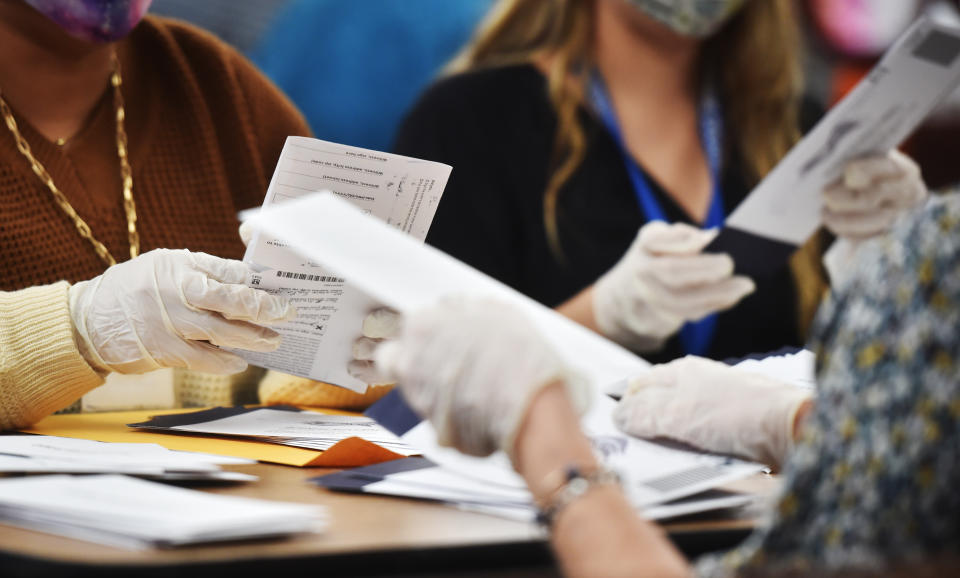
In a separate case with the same title, the Trump campaign and the RNC sought an injunction in state court on Nov. 4, alleging that Kathy Boockvar, Pennsylvania’s secretary of state, unlawfully extended the deadline for when absentee and mail-in voters must provide missing identification. The suit asked the court to stop the election board from counting absentee and mail-in ballots from voters whose identification was not received and verified by Nov. 9, according to the complaint.
The next day, a judge ordered election officials to segregate ballots that were verified after Nov. 9, according to the order. On Nov. 12, Judge Mary Hannah Leavitt granted the injunction and prohibited the counting of those ballots, according to the order.
It’s unclear how many ballots are in question, but attorneys for Boockvar wrote in their response to the complaint that “at issue are only a smaller subset of the only small subset of ballots received by U.S. mail between 8 p.m. on Election Day and 5 p.m. on Friday, Nov. 6, 2020.”
On Nov. 5, the Trump campaign and the Republican National Committee sued the Montgomery County Board of Elections in county court, alleging that the county improperly counted about 600 mail-in ballots that were deficient, meaning the ballots weren’t properly filled out or sent in. The civil case sought to stop the county from counting those ballots. The Trump campaign’s lawyer, Jonathan Goldstein, said in court that he was not accusing anyone of fraud, according to a transcript of oral arguments provided by Democracy Docket, a progressive website that posts election- and voting-related litigation.
“Everybody is coming to this with good faith,” Goldstein said, per the transcript. “We think these were a mistake, but we think they are a fatal mistake, and these ballots ought not be counted.” Court records indicate this case remains active.
In Bucks County, lawyers for the Trump campaign have challenged roughly 2,200 mail-in ballots they allege are defective due to errors such as not including a complete address, according to a Nov. 8 complaint in county court.
On Nov. 9, the Trump campaign launched a civil complaint seeking to block the certification of the election results in Pennsylvania. It accused the state of creating “an illegal two-tiered voting system for the 2020 General Election” that had harsher guidelines for in-person votes than mail-in ballots, which were plentiful this year, in an attempt to “ensure Democrat Joe Biden is elected,” the complaint said. It’s unclear what exactly the campaign wants to do with the ballots.
When asked about the lawsuit, Pennsylvania Attorney General Josh Shapiro told Politico it was the “latest meritless lawsuit” in an election that was “lawful, fair and secure.”
The Associated Press called Pennsylvania for Biden on Saturday, which led to Biden being projected as the winner of the election. Biden won by more than 50,000 votes.
Cover thumbnail photo: Yahoo News; photos: Chip Somodevilla/Getty Images; Getty Images (4)
_____
Read more from Yahoo News:



